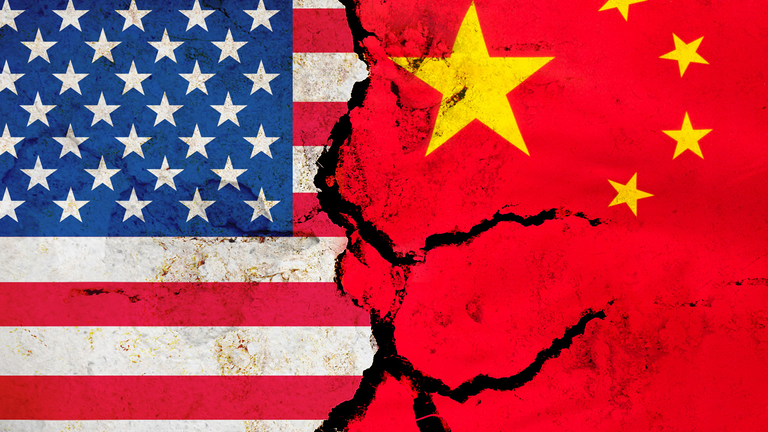
Department of Strategy and International Business, University of Birmingham
For China, forced decoupling with the US, and restrictions on technological collaboration and imports from the US, may further accelerate Chinese indigenous innovation in the long term.
The consequences of Covid-19 are reaching far beyond our imagination. It has not only caused human life crises, a global supply chain breakdown and an economic crisis, but also escalated the geopolitical tension between the US and China. The recent announcement by the US Department of Commerce imposing further restrictions on Huawei’s semiconductor chips has been seen as a sign of the new cold (technology) war. It reinforces speculation concerning the decoupling of the two countries in terms of technological development and economic cooperation. Academics and commentators have warned that a ‘new cold war’ between the two countries may be inevitable post Covid-19.
Decoupling of the US and China
The sanctions on Huawei by the US government has sent a signal that the US intends to accelerate the decoupling of high-tech collaboration and is also attempting to drive Chinese companies out of global value chains and 5G global networks. Such trade restrictions are based on the claim that China steals US technology and hence is able to take short-cuts in advancing its technological development, especially in strategic sectors. The US also claims that this has serious implications for its national security. Thus, the Trump administration is demonstrating its determination to do everything to stop China gaining unfair advantages in developing its technological capabilities. However, such a drastic protectionist measure may bring about the opposite effect, and has important implications for policy makers and businesses around the world.
Implications
For China, forced decoupling with the US, and restrictions on technological collaboration and imports from the US, may further accelerate Chinese indigenous innovation in the long term. China may develop domestic value chains based on its well-developed manufacturing systems and a large domestic market. The US move may also lead to stronger government intervention to provide various types of support needed for developing domestic high-tech industries. There is no doubt that the Chinese government has the determination and the resources to do so and could counterbalance the trade restrictions, and so avoid reliance on US technology. It is highly likely that China will eventually become a leader in both high-tech industries and manufacturing production; though Chinese companies operating in high-tech sectors may suffer from a shortage of input supplies from US semiconductor companies or companies using US technology, this will adversely affect the quality of their products in the short term.
For other countries, policy makers may have to make difficult choices between the two camps: whether they should go along with the US and distance themselves from China, or take the opportunity to engage with China more closely. China may also be eager to seek new partners to fill the vacuum caused by decoupling with the US. The geopolitical tension between the two large countries may represent the opportunity for other countries to strengthen technological cooperation with China. While engagement with China may be challenging, it is possible to find common ground and reconcile differences through greater mutual understanding. However, it requires political leaders to possess the cultural sensitivity and cross-cultural intelligence which is largely missing from the Trump administration.
The Chinese culture of ‘face saving’ means that it is difficult for the Chinese government to accept loud/hostile criticisms or finger pointing at its domestic affairs, but exchanges of different views and opinions can be achieved through constructive discussion and moderate use of language. Direct confrontation is unlikely to work with the Chinese government and may well fuel further aggression. When dealing with China, it is not about how tough and aggressive the Western governments should be, it is about how effective the dialogue between the two parties can be, and how willing both sides are to compromise. It may be difficult to do when there is a lot of noise made by populists and nationalists, and this further complicates the geopolitical tension. In particular, during a general election, politicians often tend to find a foreign ‘scapegoat’ to blame.
For foreign companies, the Chinese market is still as attractive as before, and Chinese companies are still open for business. This may represent a golden opportunity for UK companies hoping to enter the Chinese market or have further expansion there, given that British companies have a great need to seek markets outside the EU post-Brexit. There may be a positive result for the British companies which can pick up the market share previously occupied by US multinationals. Some Chinese multinationals may also retreat from the US market and seek business partners in the UK and Europe, considering the UK and the EU as their top-tier markets.
Small and medium-sized British companies could work closely with UK universities to tap into the pool of Chinese students who have been educated in the UK and this could help them to bridge the local knowledge/cultural gap when navigating the Chinese market.
Whatever happens between these two large countries, China will not return to isolation totally cut-off from the international community. However, a reversal or decoupling of 40-years of economic cooperation between the two countries will create unprecedented uncertainty as well as opportunities, with both winners and losers.
